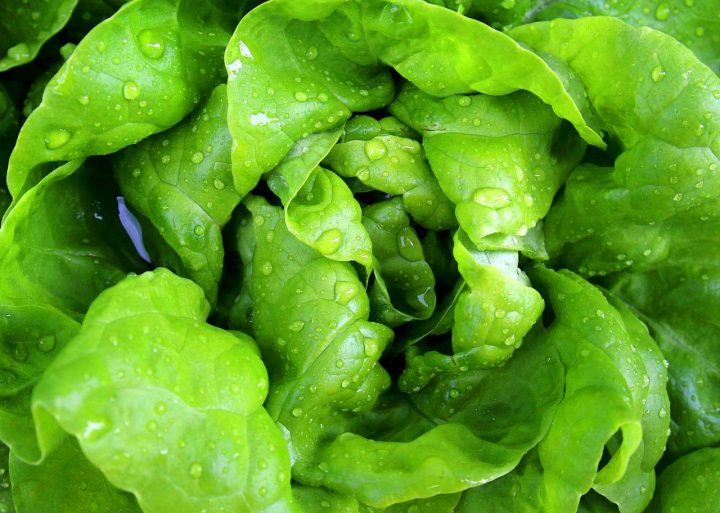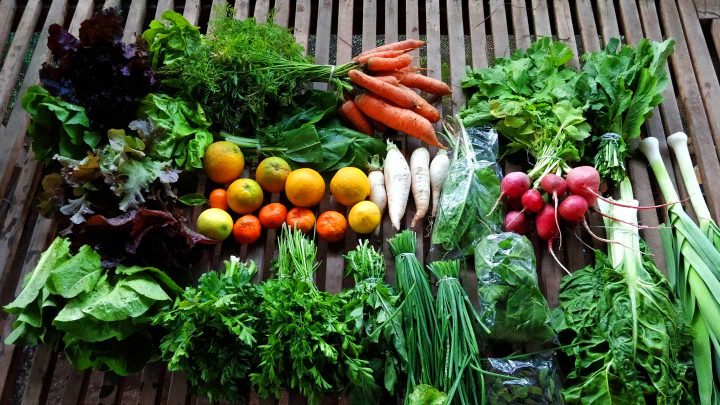It is quite obvious that organic farming protects the environment. But are organically grown foods also better, healthier, and more valuable? What makes organically grown foods differ from conventional production? Is “organic” just a marketing fad or the type of diet of the future?

Organic foods are strictly defined and highly regulated foods. The focus of organic agriculture is on environmental protection and the development of sustainable agriculture. The use of fertilizers and pesticides that damage the environment or leave residues in products is strictly limited.
The Development of Organic Farming
The beginning of the 20th century saw drastic changes in agricultural practices. With the introduction of the tractor, mechanization of agriculture evolved rapidly. At the same time, nitrogen fertilizers became widely available and created the need of applying pesticides. After World War II, DDT was added as a widely used pesticide.
At the beginning of the twentieth century, Sir Albert Howard documented traditional farming practices in India, and his studies formed the foundation for the organic farming movement of J. I. Rodale in the 1940s. In Germany, Rudolf Steiner developed the Demeter Biodynamic Farming already around 1920. His system was based on the philosophy of anthroposophy rather than a good understanding of science.
In the 1940s the agronomist Hans Müller developed organic farming in Switzerland motivated by his Christian worldview and the desire to help the small Swiss farmers survive the economic pressure of industrial farming. By the 1970s increased environmental awareness fueled the growth of the organic industry. And the introduction of genetically modified foods further fostered the interest in natural products.
Since the rise of the organic movement there has been a great controversy: Are organic products really superior to conventionally grown foods, and in which way do they show benefits?
What are the Advantages of Organic Food?
There are different parameters that we can use to ascertain the superiority of organic products. Here a list of different factors to consider:
Ecological quality: What is the impact on the environment? Is the production method sustainable in the long run?
Ethical quality: Are animals being treated adequately? Do farmers receive fair prices? The fairtrade movement is especially concerned about this aspect.

Political Issues: Are food surpluses from overproduction being destroyed just to maintain the price? Are the producers able to market their products directly in their community? Are farmers being independent from large chemical enterprises?
Taste: How does the product taste? What is the biodiversity with a variety of different flavors and smells available?
Nutritional Quality: How is the nutritional value? Does the product contribute to my health? Are there traces of pesticides or other chemicals? What about vitamin content and other micronutrients?
Economic quality: What is the practicality of using the product? How was it processed? What is the price?
The first three points are easy to respond, and organic foods are resolving a lot of issues that plague our society today. In order to be able to answer the other three questions, we need to study a bit deeper the difference in cultivation methods. In organic farming, the plant is not supplied with an abundance of fertilizers. The use of herbicides and pesticides is severely restricted. This means that the plant has to rely more on its natural defenses.
Nutritional Content
If the plant has readily available nitrogen, which is one main component of fertilization, it will produce more nitrogenous compounds. These are mainly proteins. If the nitrogen supply is lower, more carbon-containing ingredients are produced. This includes starch for energy and cellulose for fiber. The lower nitrogen supply also results in a higher content of ascorbic acid, or vitamin C. Organic apples generally have a higher vitamin content.
Organic plants grow slower and contain less water. The dry matter is therefore greater and the shelf life longer. With a lower water content, flavor and aromatic substances are more concentrated. This results in better taste and smell.

Because fewer pesticides are used, the plant also produces more phytochemicals, serving the plant to protect itself against fungi, bacteria and pests. These phytochemicals also serve our health in a variety of ways.
There were some attempts trying to make the secondary ingredients a proof of organically produced products. But it is very difficult because differences in soil, the degree of ripeness of the food, climate and rainfall and, last but not least, the different varieties greatly influence concentration of phytochemicals.
Occasionally, higher mycotoxin concentrations occur in organic foods. Mycotoxins are toxic metabolites produced by mold that can cause health problems. But we have seen that organically grown plants produce more fiber. Fiber in the diet helps that toxins can be bound and excreted more easily.
Trials with Free Food Choices in Animals
Experimental animals, which can choose for themselves which food they want to eat, prefer organically grown food. This was proven in double-blind studies, in which the keepers did not know which of the plate was the organic food. Both conventionally and organically produced feed are always offered together, but the preference goes to the organic food. Other experiments have shown that animals on organically grown feed also show higher fertility.
Experiments with Self-decomposition
If heads of lettuce from both cultivation methods are cut up, placed in Petri dishes, covered and left to their own at the same temperature, conventionally grown lettuce will decompose faster than organically grown ones. This can be attributed to increased phytochemicals. Therefore, organically grown lettuce can be stored much longer than conventional produce. The same is true for most other fruits and vegetables.

Processing
Organic cultivation alone is not enough to ensure a higher quality of the products. Careful processing is also very important. Unfortunately, it is the case that in small health food stores with little activity, the valuable organic products often remain lying around for a long time and then become unsightly and diminished in value. Large retail chains already offer organic produce today. They naturally have a higher turnover with fresher goods. But sometimes you are able to acquire fresh produce directly at the farmer or on the farmers market.
Even in industrial processing, paths are being taken that justify processing raw materials from organic production. Only a few selected additives are permitted. Of the total of around 300 additives allowed in the European Union, around 10% are permitted in organic products. To enhance the taste, only natural flavorings and extracts are permitted. Nevertheless, the whole range of convenience products can actually be produced as organic. Convenience products are foods that are largely prepared for consumption, such as frozen products, instant meals or ready-to-cook soups.
Organic in Catering
Eating out and mobile meal services are on the rise. For a long time, organic products were underrepresented in communal catering. Now the trend towards organic products has also reached mass catering. More and more managers in commercial kitchens require their suppliers expressly products from certified organic agriculture. This is a great challenge for suppliers and producers.
Organic Certification
The principle of organic certification is the complete tracing of the history of a product. It is a process control, not an end product control. The farms are inspected annually. In addition, unannounced spot checks are made. If the guidelines are violated, sanctions are imposed and a report is sent to the competent authority.

Organic has Future
Organic farming is good:
- for the soil
- for the groundwater
- for the plants
- for the landscape
- for the animals
- for the local supply
- for the environment
- for me
That’s why organic farming is good for all of us. We can clearly say: with every purchase of an organic product, we also acquire a small piece of a healthier environment.

Stay Always Up to Date
Sign up to our newsletter and stay always informed with news and tips around your health.

Esther Neumann studied Nutrition at the University of Vienna. Since then she served as an author for the health magazine “Leben und Gesundheit” and conducted health lectures in various locations of Austria.
I look forward to reading this blog every Sunday, thank you and God Bless!